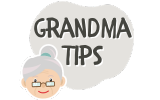
Caregiving for my wife was the vow we took almost 65 years earlier.
In sickness and in health
Richard J. Anthony, Sr.
A few years before my wife’s illness required caregiver support, I made a prophetic investment in a startup venture that had developed technology to assist caregivers and care-dependent adults. Because I believed in the company’s mission, I joined the venture to advise them on strategy and marketing, two areas in which I had consulted for many years.
“Like most family caregivers, the daunting responsibility for a loved one’s well-being was thrust upon me as she became increasingly more dependent.”
Through research and talking with people in the field, I learned that there are 53 million unpaid family caregivers in the country and the nation is facing a looming caregiver crisis because people are living longer with multiple morbidities. Because of stress and fatigue, caregivers can suffer from debilitating physical and mental health illnesses. Careers are often disrupted or ended for those who work and put in an additional 25 hours a week on average caring for a loved one. On average, caregivers spend 4.5 years providing care. And I learned that more men and young people are changing the stereotypical caregiver profile of a 47-year-old female.
You would think that knowing more than the average person about caregiving would have better prepared me for the full-time role I assumed for my beloved wife, Marlene.
It didn’t. Like most family caregivers, the daunting responsibility for a loved one’s well-being was thrust upon me as she became increasingly more dependent.
Marlene had been a fiercely independent person, a character trait honed over years as a mother to five children, grandmother to 15, and great-grandmother to eight. She didn’t live to see our ninth great-grandchild, but we’re sure she met him in Heaven before he was born. Even as a 14-year-old when we first met, and through the years of our marriage which was just short of 65 years, she was strong-willed with a mind of her own.
Although she grudgingly became reliant on a collection of canes, upstairs and downstairs walkers, a red plaid wheelchair, and other assistive devices, she would not be cowed into submission by idiopathic respiratory symptoms, heavily medicated hypertension, and eventually the early stages of vascular dementia. She even rebounded from a bad fall on Christmas Eve that broke her petite nose and put a nasty gash on her forehead. The staff in the ER insisted that she stay, but spending Christmas in the hospital away from the gleeful cacophony of a five-generation family brunch and Christmas gift wrappings strewn all over the living room floor was not acceptable. Marlene was indomitable.
She grieved over the broken nose, lamenting that it was her best feature. How wrong she was. Marlene was a beautiful woman who never looked her age. During her several hospital sojourns, it was common for the staff to look up from her records with astonishment. “You can’t be 80 years old!”
I never thought of myself as Marlene’s caregiver. Being there for the love of my life had been promised decades before. That’s what a spouse does. Besides, filling in on household chores was not new. In a large family, everybody chipped in. However, my caregiver status became more compelling as Marlene became less active, more agoraphobic, and eventually less cognitive. She stopped driving three years before she passed, surrendering her independence to the passenger seat. Her trips to have her hair and nails done became less frequent. She bristled at yet another visit to a medical expert to learn why her blood pressure was so unstable, a condition that severely diminished her interest in doing much of anything. The TV series “Murder She Wrote” and “Diagnosis Murder“ became her nocturnal companions, helping to make sleepless nights more bearable. The multiple side effects of myriad medications – nausea, dizziness, insomnia, lack of appetite, and worse – made the three-times-a-day blood pressure monitoring a dreaded regimen for both of us. A month before she was placed in hospice, she said “I feel like I’m dying.” It frightened me. I couldn’t know how prescient she was.
Medication management was the most stressful part of caregiving. A mistake with her blood pressure medications, for example, could have very serious consequences. Her blood pressure had to be monitored continuously. And making judgments about medication became increasingly difficult. If her blood pressure was in a reasonable range, should she be given the prescribed dose for a higher pressure reading, risking a precipitous and perhaps dangerous drop in blood pressure?
I stopped apologizing to doctors for the late-night appeals for guidance instead of following the directions on the prescription bottle. After a while, I gained confidence in making judgments about frequency and doses. But there was always a bit of anxiety. Did I do the right thing? Did I inadvertently mix the pills up because I was distracted? Suppose I overmedicated her before she went to bed?
Caregiving is a lonely, stressful, aggravating, sometimes surreal experience. My time wasn’t my own. I suspended all other outside activities. She required 24-hour vigilant care to prevent falls, prepare meals, and help her with her personal needs. Our children were a godsend, but they had families and jobs. They were a safety net. But they couldn’t be the day-to-day first team.
Caregiving is a continuum, often culminating in the death of a loved one. In her final 911 rush to the ER, the doctor told me that they couldn’t do anything more for her. “Take her home and keep her comfortable.” Even though I knew Marlene’s condition was deteriorating, my initial reaction was disbelief and anger. Why, after all this time, was I being told that her body was not self-regulating? She had both hypertension and hypotension. When I went back into her room, Marlene asked “How are we doing?”
What the hell could I say?
Marlene took her last breath Monday, October 3, 2022, at 2:16 PM surrounded by her family in her dining room that had been converted into a hospice sanctuary. Caregiving turned to grief and despair. The love of my life was at peace. Her suffering was over. In short order, I began to think about all the things I could have done better. I could have been more patient. More tolerant. More understanding. If only someone had told me what to expect so I would know the limits of what I or anyone else could do. Maybe I expected too much, of myself and others. Maybe not enough.
“If only someone had told me what to expect so I would know the limits of what I or anyone else could do. Maybe I expected too much, of myself and others.”
As I reflected on my time as a caregiver, many perplexing questions occurred to me. Why isn’t there a better way to access and coordinate the resources caregivers need? Why aren’t there programs to prepare and support caregivers? What is our country doing to help the 53 million unpaid family caregivers, up from 43 million six years ago? What recourse do caregivers have who are intimidated by the health care system? What are employers doing to support the growing number of caregivers in their workforce? What are our government and healthcare institutions doing to deal with the shortage of geriatric doctors and nurses? When will more research be directed at preventing dementia and Alzheimer’s, not just therapeutics? Why can’t the richest, most technologically advanced country in the world do a better job of caring for its older citizens?
“I interviewed experts in the field and men and women who were or had been unpaid family caregivers.”
Less than two months after Marlene’s death, I launched a TV series in her memory titled “CaregiverAssist.” In 14 half-hour episodes, I interviewed experts in the field and men and women who were or had been unpaid family caregivers. The series just scratches the surface in getting answers to the myriad questions about caregiving, caregivers, and the elderly. I hope Marlene approves.
Takeaways for family caregivers:
- Be patient and forgiving with yourself. You’re not perfect.
- Accept that the health care system is broken. Lower your expectations.
- Sometimes your primary care physician is your best refuge from the specialists’ crosstalk.
- Recruit family and friends to develop a safety net you and your loved one can count on when help is needed.
- Take time out for yourself. You need physical stamina and emotional equilibrium to be at your best.
- Use the internet to educate yourself about available resources and benefits to which you and your loved one may be entitled.






